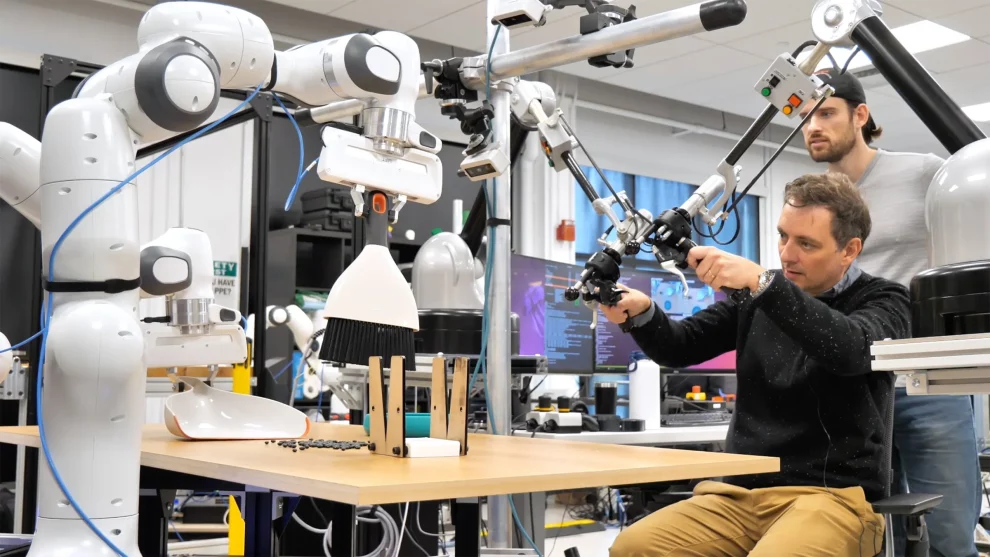The Fourth Industrial Revolution is underway, spearheaded by unprecedented advancements in artificial intelligence (AI) and robotics. These exponentially accelerating technologies are radically transforming industries and workplaces globally.
However, concerns remain about unequal access and distribution of capabilities. Developed nations currently have a commanding lead in leveraging AI and robotics for industrial transformation and economic growth. This risks further concentrating power and widening existing social and economic divides globally.
Urgent action is required to democratize access to these transformative technologies. Strategic partnerships between public and private sector stakeholders can play a pivotal role in promoting responsible and equitable global development and adoption.
The Critical Importance of Democratization
Enabling wider access to industrial robotics and AI across regions and economic strata is crucial for several reasons:
- Fueling Broad-Based Innovation and Economic Growth: Democratization allows more equitable participation in developing and leveraging these technologies. This creates tremendous opportunities for innovation, job creation, and empowering local industries across geographies.
- Bridging the Skills Gap: Reskilling and upskilling workforces is imperative to adapt to the new automation-driven economic realities. Democratization can facilitate much-needed knowledge transfer and capacity building to bridge widening skills gaps.
- Promoting Responsible and Ethical Adoption: Inclusive development and governance frameworks are essential for mitigating potential biases and negative externalities associated with rapid technological disruption. Democratization fosters transparency, accountability, and high ethical standards.
Overcoming Key Barriers to Equitable Access
Despite strong incentives, achieving democratization faces several systemic hurdles:
- High Costs and Infrastructure Limitations: The significant upfront investments and infrastructure requirements pose almost insurmountable adoption barriers for lower-income regions.
- Acute Shortage of Specialized Skills: The complex nature of these technologies combined with gaps in STEM expertise severely restricts indigenous capabilities in less developed countries.
- Fragmented Policy Landscapes: Disparities in national innovation policies and regulatory environments undermine harmonized progress.
- Data Access and Governance Challenges: Creating equitable and secure data access frameworks remains a top policy priority to fully harness AI’s potential.
Emergence of Cross-Border Technology Partnerships
Acknowledging the scope and complexity of barriers, pioneering global collaborations are emerging focused on responsible and inclusive technological transformation:
- Global Partnership on AI (GPAI): This international, multi-stakeholder initiative aims to foster public understanding of AI and develop shared frameworks for ethical and robust AI systems.
- World Economic Forum Centre for the Fourth Industrial Revolution: The Centre builds cooperation between governments, businesses and civil society to co-design inclusive policies and governance for emerging technologies like AI and robotics.
- Regional Capacity Building Efforts: Collaborative undertakings like the ASEAN AI Network and the African Union’s Digital Transformation Strategy promote localized skills development and technical coordination.
Strategic Priorities for Action
Further accelerating democratization requires concrete steps by diverse stakeholders:
- International Knowledge Transfer Programs: Structured exchanges of expertise between advanced and emerging economies through research partnerships, academic courses and industry training programs.
- Innovative Funding Models: Launching dedicated funds and public-private financing schemes to subsidize technology development and adoption costs for disadvantaged geographies.
- Harmonized Education Frameworks: Standardizing learning outcomes through global university networks and industry-recognized certifications to enable workforce mobility.
- Responsible Data Collaboration: Developing ethical open data repositories, sharing agreements and governance protocols to enable secure cross-border data flows.
- Policy Coordination Networks: Aligning regulatory approaches across nations through structures like the Network of Experts on AI Standardization (NEST).
Key Takeaways on Fostering Responsible Global Access
The scale and speed of ongoing technological disruption requires us to urgently prioritize democratization and inclusive participation. Some key conclusions include:
- Industrial AI and robotics will be the key drivers of economic differentiation globally, necessitating equitable access.
- Complex barriers exist, underscoring the need for coordinated action between diverse public and private stakeholders.
- Emerging global partnerships provide promising foundations to build upon through localized capacity building.
- Targeted investments, ethical data governance and policy coordination are crucial for accelerating democratization.
Through sustained multilateral efforts focused on equitable technology diffusion, we can realize an inclusive and prosperous future empowered by the Fourth Industrial Revolution’s immense potential.
















Add Comment